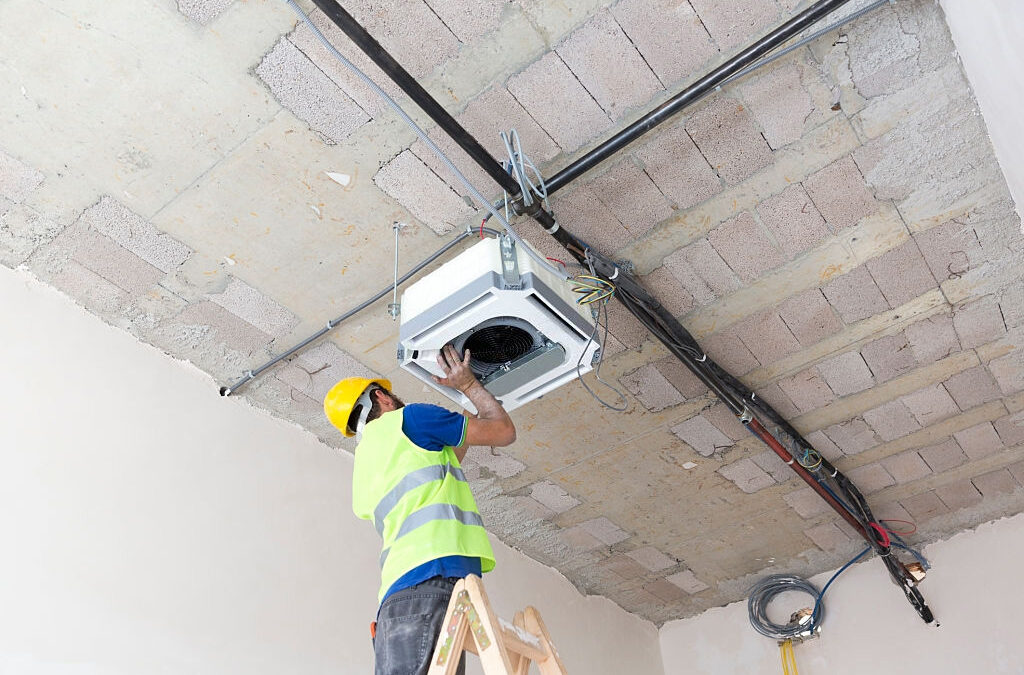With global warming and the increasing need for comfort, air conditioning has become necessary in most households. However, this convenience comes at a cost. Air conditioners consume a significant amount of energy, leading to high electricity bills and contributing to environmental pollution. To combat this issue, efficient AC installation has become essential. Homeowners can save energy and money in the long run by implementing energy-efficient practices during installation.
One of the key factors in efficient AC installation is selecting the right size unit for the space. Oversized air conditioners cool the room quickly but consume more energy. On the other hand, undersized units need help to cool the space efficiently, leading to increased energy consumption. By accurately measuring the room’s dimensions and consulting with HVAC professionals, homeowners can choose an appropriately sized unit that maximizes energy efficiency.
Proper insulation is another crucial aspect of efficient AC installation. Well-insulated homes retain cool air for longer periods, reducing the need for the air conditioner to run continuously. Insulation helps to maintain a consistent indoor temperature, preventing the cool air from escaping and the warm air from entering. By investing in insulation, homeowners can significantly reduce their energy consumption and save money on their monthly bills.
In addition to insulation, sealing any air leaks around windows, doors, and vents is vital for efficient AC installation. Air leaks allow cool air to escape and warm air to enter the room, forcing the air conditioner to work harder. Sealing these leaks helps to create an airtight environment, ensuring that the cool air remains inside the room. This practice reduces the strain on the air conditioner, resulting in lower energy consumption and cost savings.
Another effective way to save energy and money during AC installation is by installing programmable thermostats. These thermostats allow homeowners to set different temperature levels for different times of the day or week. For example, during the day when no one is home, the thermostat can be set to a higher temperature to reduce energy usage. The thermostat can then be programmed to lower the temperature just before the residents return home. This practice ensures the air conditioner operates efficiently and minimizes unnecessary energy consumption.
Regular maintenance and servicing of the air conditioning unit are also essential for efficient AC installation. Dust and debris that accumulate on the filters and coils reduce the unit’s efficiency and hinder its performance. By regularly cleaning and replacing the filters, homeowners can ensure that the air conditioner functions optimally, saving energy and reducing costs. Additionally, scheduling annual maintenance checks with HVAC professionals can identify any potential issues and rectify them promptly, preventing further energy waste.
Efficient AC installation also involves the proper placement of the outdoor unit. Placing the unit in a shaded area away from direct sunlight allows it to operate more efficiently. The cooler environment reduces the unit’s strain and helps maintain a lower temperature, resulting in energy savings. Proper airflow around the unit is crucial, as any obstruction can impede its performance and increase energy consumption. By carefully selecting the location and ensuring adequate airflow, homeowners can maximize the efficiency of their air conditioning system.
In conclusion, efficient AC installation is essential for saving energy and money. By choosing the right size unit, insulating the home, sealing air leaks, installing programmable thermostats, and conducting regular maintenance, homeowners can significantly reduce their energy consumption and decrease their monthly bills. These practices benefit the individual and contribute to reducing energy usage and environmental preservation. By adopting efficient AC installation techniques, we can all play a part in creating a more sustainable future.

